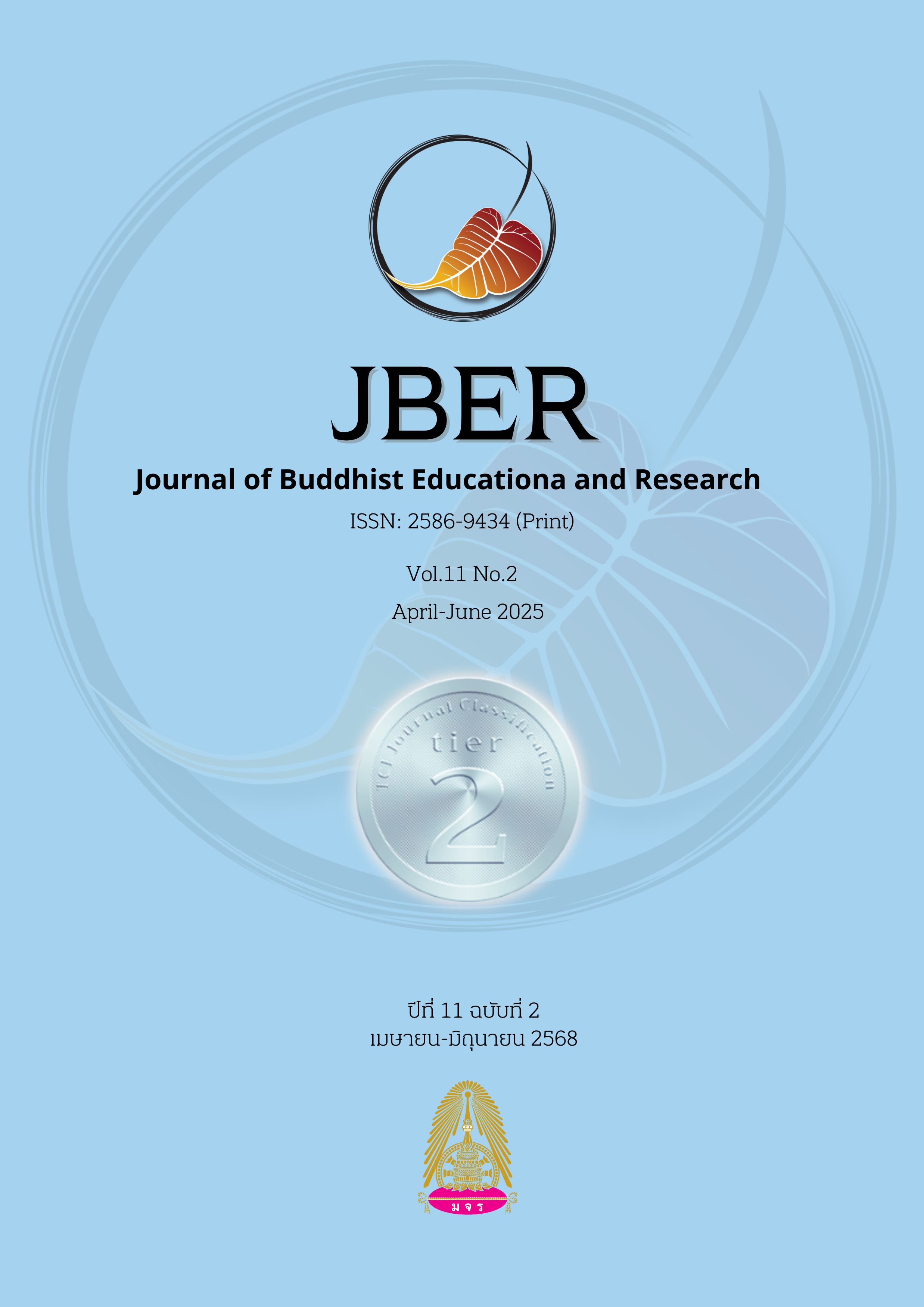Learners’ Attitudes Toward English Pronunciation and Their Ability to Distinguish Phonetic Features and Pronounce Vocabulary Before and After Completing a Course in English Articulatory Phonetics
Keywords:
English articulatory phonetics, attitude, phonetic discrimination, English pronunciationAbstract
This quasi-experimental study aimed to examine the relationship between students’ attitudes toward English pronunciation and their abilities to identify phonetic features and pronounce vocabulary before and after completing a course in English articulatory phonetics. The participants, selected through purposive sampling, consisted of 32 undergraduate English majors. Research instruments included (1) an attitude assessment questionnaire, (2) four phonetic discrimination tests, and (3) a set of vocabulary items. Data were analyzed using descriptive statistics, including percentage, median, and mode. The findings revealed that students' attitudes toward English pronunciation improved significantly in a positive direction after completing the course. This change positively correlated with their enhanced phonetic discrimination abilities as assessed through listening and dictation activities, with post-test scores reaching very high levels—96.9%, 91.6%, 96.4%, and 90.6%, respectively. Pre-test scores ranged from low to moderate levels—67.5%, 43.4%, 58.9%, and 37.5%, respectively. Similarly, students’ pronunciation proficiency improved markedly. In pronunciation tasks involving the use of an English-English dictionary, students achieved the highest quality of performance, with a median score of 4.7 and a mode of 5. Prior to the course, their performance in pronunciation tasks using a Thai-English dictionary was at a moderately low level, with a median of 2.8 and a mode of 3. These findings demonstrate that ‘attitude’ plays a crucial role in students’ academic success alongside intellectual ability. A positive attitude toward English pronunciation significantly supports the improvement of students' abilities to identify phonetic features and pronounce English vocabulary.
References
กัญญาเลข ฟูตระกูล. (2565). การพัฒนาทักษะการฟังและการออกเสียงภาษาอังกฤษด้วยหลักการสอนอ่านแบบโฟนิกส์สังเคราะห์ โดยใช้วิธีการสอน Jolly Phonics. วารสารวไลยอลงกรณ์ปริทัศน์ (มนุษยศาสตร์และสังคมศาสตร์), 12(3), 229–244.
บุญชม ศรีสะอาด. (2554). หลักการวิจัยเบื้องต้น (พิมพ์ครั้งที่ 9). กรุงเทพฯ: สุวิริยาสาส์น.
พิณทิพย์ ทวยเจริญ. (2547). ภาพรวมของการศึกษาสัทศาสตร์และภาษาศาสตร์ (พิมพ์ครั้งที่ 3). กรุงเทพมหานคร: มหาวิทยาลัยธรรมศาสตร์.
ระดับเชาวน์ปัญญา. (2566, 19 พฤศจิกายน). ใน วิกิพีเดีย. https://th.wikipedia.org/wiki/ระดับเชาวน์ปัญญา
รักษมน ยอดมิ่ง. (2560). การสอนออกเสียงภาษาอังกฤษของครูภาษาอังกฤษระดับประถมศึกษาในจังหวัดพระนครศรีอยุธยา. Veridian E-Journal, Silpakorn University, 10(1), 1216–1226.
รัตตินันท์ ทูลศิริ, & นิธิดา อดิภัทรนันท์. (2563). การใช้วิธีสอนแบบโฟนิกส์เพื่อส่งเสริมความสามารถในการออกเสียงภาษาอังกฤษและความรู้คำศัพท์ของนักเรียนชั้นมัธยมศึกษาปีที่ 1. Journal of Education Naresuan University, 22(4), 185–198.
ฮาสีด๊ะ ดีนามอ. (2553). การศึกษาความสามารถในการฟัง-พูดภาษาอังกฤษของนักเรียนชั้นมัธยมศึกษาปีที่ 1 โดยวิธีการสอนเพื่อการสื่อสารตามแนวคิดของคีธ จอห์นสัน [วิทยานิพนธ์มหาบัณฑิต, มหาวิทยาลัยทักษิณ].
Cambridge advanced learner’s dictionary (4th ed.). (2013). India: Cambridge University Press.
Harmer, J. (2007). The practice of English language teaching (4th ed.). Harlow, Essex: Pearson Education.
Nation, I. S. P. (2009). Teaching ESL/EFL listening and speaking. New York: Routledge.
Oxford advanced learner’s dictionary (7th ed.). (2005). Oxford: Oxford University Press.
Piaget, J. (1971). The theory of stages in cognitive development. In D. R. Green, M. P. Ford, & G. B. Flamer (Eds.), Measurement and Piaget (pp. x–x). New York: McGraw-Hill.
Shah, S. S. A., Othman, J., & Senom, F. (2017). The pronunciation component in ESL lessons: Teacher’s beliefs and practices. Indonesian Journal of Applied Linguistics, 6(2), 193–203. https://doi.org/10.17509/ijal.v6i2.4846
Wei, Y., & Zhou, Y. (2002). Insights into English pronunciation problems of Thai students. ERIC. https://eric.ed.gov/?id=ED476746
Downloads
Published
How to Cite
License
Copyright (c) 2025 Journal of Buddhist Education and Research (JBER)

This work is licensed under a Creative Commons Attribution-NonCommercial-NoDerivatives 4.0 International License.





